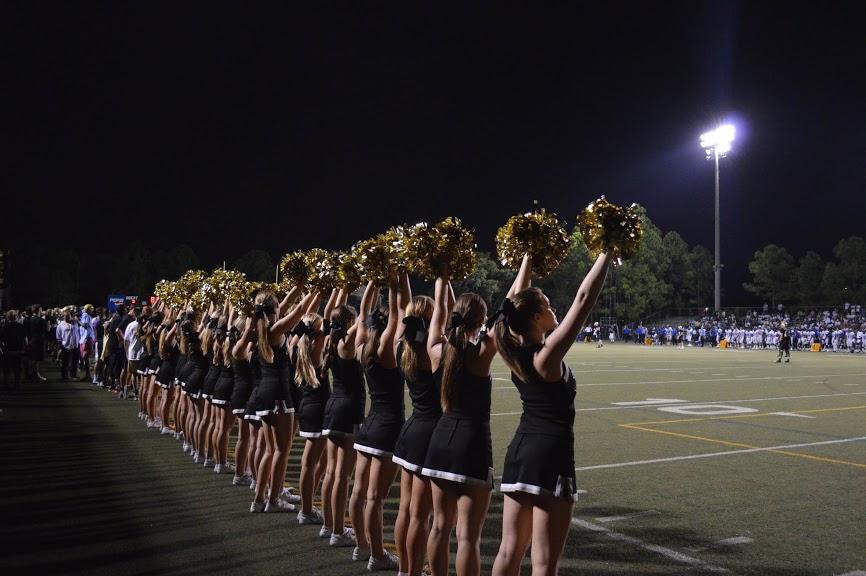Cheerleaders hollaback at negative stereotypes
The cheerleading squad cheers on the sideline during a home football game. The cheerleaders train hard before every event, showing their dedication.
Cheerleading, an All-American high school sport, holds a long-established position in Plant athletics. Despite cheerleading’s rank as the second youth sport in “catastrophic injuries,” accord- ing to the United States Sports Academy, some cheerleaders feel that people underestimate their skill level in addition to holding more personal prejudices against cheerleaders.
“I feel like a lot of times, peo- ple don’t realize how much work cheerleading takes,” Olivia Gout- oufas, junior, said. “People take us as a joke sometimes and we had to practice a lot to get where we are.”
In addition to practices for the school squad during the week and performing at school sports events, many cheerleaders prac- tice outside the gates of Plant.
“[I cheer] about eight to nine hours a week between practices, competitions, and other events,” Allison Daley, junior, said.
Spectators often only observe the squad calling out cheers on the sidelines at sporting events. How- ever, stunts and tumbling skills required to make the team require hours of practice at cheer-focused gymnastics centers.
“Even though it involves dancing, it takes a lot of work and muscles to pick up girls and tumble,” Gabriella Casares, freshman, said.
The conclusion of the football season marks the beginning of competition season for the school team. Squad members commute to other high schools during the week in order to compete, often arriving back home as late as 11 p.m. some nights, according to captain Caroline Miller, senior.
“It’s hard because we get back really late and are tired from competing and have to start our homework,” Miller said. “It’s especially difficult if I have multiple tests the next day.”
Not only do the cheerleaders dislike the perception that the squad lacks talent, but they object to use of cheerleader stereotypes to define their personal conduct.
“It’s hard to believe that someone would be able to have an idea of cheerleaders as a whole, since I’ve spent so much time with our team and experiencing how different each one of us is,” Miller said.
Although sports events constitute a large portion of the time commitment of cheer, the athletes don’t feel that they receive enough credit for their own abilities.
“I think people undervalue cheerleading. A lot of people think we are just there to cheer on other sports,” Daley said.
Competition season for the cheer squad ends in late January and the squad will continue to cheer at basketball games for the remainder of the season.


